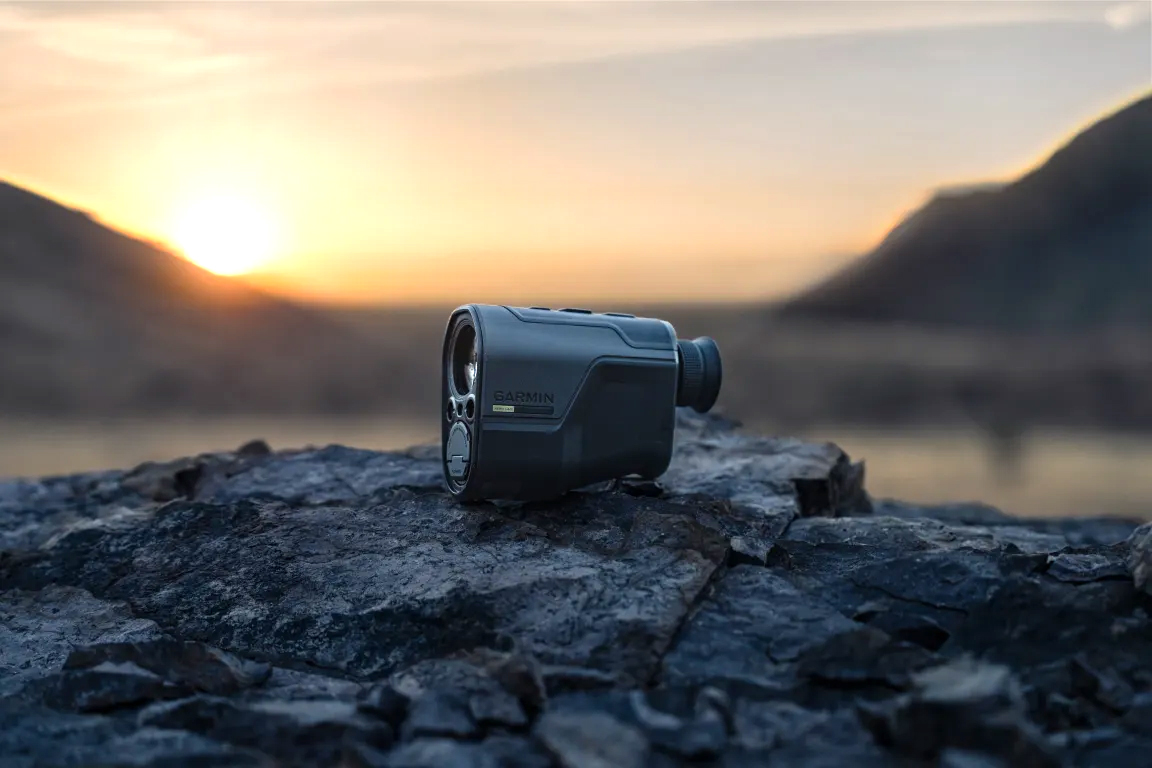My Dog and I Got Lost in the Grouse Woods. We Found Something I Still Can’t Explain

This story, “The Invincible Grouse Hunter,” appeared in the Nov. 1984 issue of Outdoor Life. OL occasionally published fictional hunting stories over the years. We are pretty sure — but not positive — this is one of them.
I don’t know where I made the wrong turn. It was a dark day-scudding clouds, flat-lit, chilly, damp-and there are few landmarks in the North Country to help orient someone tramping through the woods. The spruces huddled defensively, as if expecting hard times, and the birch and aspen waved white, ineffectual arms at the snapping November wind.
But mean weather is never a good excuse to stay home during the grouse season, so Chip and I pressed on through the deep woods: the dog following his red nose, me following the dog.
Maybe the first grouse flush is where I went wrong. It was one of those birds that jumps just after you’ve passed it, giving you an awkward, backwards-twisting shot, at best. I can’t remember ever hitting a bird like that and I didn’t then-missed it clean, but shot off a couple of innocent birch sprouts. I cussed the bird admiringly, with out heat, and watched it set its wings and sail over the next sand-and-granite ridge through the leafless birches. I figured I had the bird pretty well marked, so I called in Chip and we slogged in that direction.
Then a second bird went up without warning. I missed that one, too. No one ever accused me of threatening the local grouse population. But I had this one spot ted; I had seen it land and run a few feet. So I eagerly abandoned the first bird and trotted after the second one. I vaguely re member skirting the springy edge of a bog, then pushing my way through head-high clumps of alder. I killed the bird on the rise and added a woodcock at what I took to be the far edge of the thicket.
Only, when I tried to retrace my path, nothing looked familiar. That’s the way the North Country is, featureless, thick with trees and broken only by potholes where deer water and beavers swim. The animals always know where they are or, I think, they really don’t care if they don’t.
I cared. I was thoroughly lost, it was after noon, and I really didn’t want to spend a cold night in the woods.
Normally, I wear a pocket compass, a little clip-on job that I can use to find mag netic north. Naturally, it was clipped to my other shirt, the red one that I wear when I’m hunting with someone else. The one that was at home in the closet.
“Damn!” I said aloud.
I called Chip in and sat on a moss-covered log to think about it.
“We’re lost, friend,” I said. “Lost in big country … “
He leaned against me and I admired his simple (and probably misplaced) trust. He’d follow me to hell and beyond, certain that I’d provide. I tried to retrace my route men tally, but of course I couldn’t be certain of anything. Still, any decision was better than no decision at all, so I chose a line of travel and picked a distant spruce tip as a reference point. If only the sun would come out! But the day remained gray, shrouded, and sullen.
I made a couple of detours around bogs in the next hour, and once toured the shore of a small lake because few North Country Jakes these days are without an access road. But this one was one of the exceptions.
And then I stumbled onto a road — literally – because I stepped onto a carpet of ferns, sunk down through them, and saved myself from tumbling headlong onto the roadbed only by an ungraceful recovery.
It was certainly no heavily used trail: The sand was undisturbed and largely grown over with invading plants. A couple of blow downs gave unspoken evidence that no one, at least in a vehicle, had passed this way for a long time. Perhaps it was an old Jog ging trail. But it had to come from some where and go somewhere, so I picked the left for no reason and started that way.
It must have been a mile or so down the path that I rounded a bend and spied the house. There was far less light now, about as much as you’d expect late in the evening, though when I checked my watch it was only midafternoon. The day seemed over hung by an unnatural darkness, as if some thing large and ominous was hovering over head. I looked up instinctively, then laughed at my quick, irrational fear. Panic at being lost …
The house looked uninhabited. It certainly had not been painted for a long time. It was tall and spare, a typical North Country farmhouse with long window frames, clapboard siding, a galvanized roof now gone to rust, lightning arresters, and a sag ging porch. The house was as gray as the sky. Even though I was certain no one lived here, I circled the building, kicking through the matted weeds. I tried peering through a couple of windows, but they were so clouded over that I couldn’t see inside. Then, as I returned to the front porch, I started in quick fear: There was a man sit ting in an old chair on the porch.
“Jeez! You startled me!” I exclaimed, my heart thumping.
The man didn’t move. He was in shadow, not at all distinct. He said nothing.
“I’m sorry for prowling around,” I said, embarrassed. “I didn’t see you sitting there.”
I moved up on the first of the two steps that led to the porch and got a better look at him.
He sat very straight and strong on the battered chair, ridged and knobbed old hands crossed on his knees. He wore a battered felt hat, a faded checked flannel shirt, red-and-yellow vertical-striped suspenders, and gray pants with leather facing on the thighs.
“Partridge hunting?” he asked in a whispery voice as dry as the rustle of mouse feet in dead leaves.
I nodded. “I got lost. I wasn’t hunting on your place. Don’t want you to think I’d hunt without permission.”
“Asking’s right,” he said. “I like that.”
His voice was more than just old. It was as if it came from a Jong, Jong way off.
“I don’t care if you do hunt here,” he said. “Right good for partridge, too. There’s a covey of four or five down there in that alder swamp.”
“Well, I really ought to be getting on home,” I said. “Except I don’t know where home is. Don’t know where I am now, either.”
“You’re here,” the old man said. “And that’s good enough, ain’t it?” He paused for a moment while I tried to think of an answer, then he went on. “Ain’t many people find their way back in here. Them that do I show something special.”
I began to wonder if the old man wasn’t more than a little cracked. The whole situation puzzled me-the atmosphere even seemed charged with eerie energy. Chip whined and nuzzled at my hand. Usually, he was all bark and bustle around strangers. “There’s an old road about half a quar ter through that pine grove,” said the old man, as if sensing my unease. “Take a right and go about a mile and you’ll hit the county highway.”
I relaxed. He was just a harmless old coot – cabin feverish, maybe, but nothing to spook at.
“‘Fore you leave, though, why don’t you go down and hunt up that swamp covey. I’d kind of like to see somebody put them up … just one more time.”
It was a kind offer and I guessed that maybe he was crippled to the point where he couldn’t hunt and just liked to sit and enjoy the sport vicariously.
“Nice gun you’re carryin’ ,” he said. “Smith, ain’t it?”
“Wouldn’t shoot anything but an old double,” I said. “There’s something about these old side-bys.”
“Ever seen one like this?” he asked and, for the first time, I saw a gun leaning against the porch railing near him.
And such a gun! Every part of the receiver was intricately whorled with engraving. The trigger guard held sinuous designs, the locking lever glowed with finely chis eled patterns, the lovely figured stock had such a deep finish that it was like looking into a dark woods pool.
“My God!” I breathed reverently, “that’s the most beautiful shotgun I’ve ever seen!”
“Right pretty,” agreed the old man. “Ain’t been used for quite a while. I’d like to see her work one more time. Why don’t you take her down to the alders and see if
you can’t put up a bird?”
“Oh, no … I couldn’t!” I protested.
Though, of course, I wanted desperately to pick up that lovely shotgun, caress it, admire it, shoulder it, and hear it chant ancient thunder at flying birds.
The old man turned his head slightly, his eyes caught mine, and I felt as if I were being pulled toward him. I took a step and picked up the gun. Other than the slight tum of his head, the old man hadn’t moved, hands still crossed on his knees, curiously white for an outdoorsman. For just an instant, I looked deep into his faded blue eyes and saw … darkness, perhaps, and infinite sadness, and something so cold and far away that it shook me. I inhaled sharply with unaccountable fear, then the old man looked down the hill at the alder thicket. “Would you take my old dog along?” he asked. “She’s gettin’ on, but she’s game for a short hunt.”
I hadn’t seen any dog, but he whistled faintly and an arthritic old setter limped out of the shadows in the yard, looking to ward the porch.
“You’ll just about have time to hunt the alders and make it out to your road before dark,” the old man said. “Let me see Dolly work before the dark comes.”
I looked at the wondrous shotgun. It was a Parker, legendary for that reason if for no other, but finer by far than any of the admittedly few Parkers I’d ever seen.
“Go on now,” whispered the old man, his voice a gentle shove that guided me off the porch.
Chip heeled tight to my left, his ears laid back, whining softly. But Dolly moved stiffly down the hill toward the thicket and it was his dog that the old man wanted to see, not mine, so I let Chip trail me.
I examined the gun more closely, noticing the serial number – 200,001 – on the trigger guard tang. And inlaid in fine gold were the initials Wm. P. How could some old woods rat ever have come by a shot gun as obviously valuable as this one? I decided that I would have a talk with the sheriff, but not until I got a chance to use the shotgun on those alder swamp birds.
I dropped two 12-gauge shells into the chambers with a musical poonk! The old dog slowed to a stop, nose full of bird stink, feathery tail quivering. Sure enough, the stylish point was just at the edge of the alder thicket and I eased in behind the rigid dog, talking softly, “Easy, old girl … Easy now … “
A pair of grouse flushed, one low and veering to the left, the other reaching for sky above the scrubby trees. The gun rose instantly to my shoulder, stock smooth as butter on my cheek. I touched the front trigger, only dimly aware of the buck of the gun, watched the bird shed feathers, and its life. I tracked to the second bird in the blink of an eye and killed it cleanly at the top of the trees. It was my first grouse double ever and I breathed pure joy for a moment. Chip had marked the birds down and brought them to me, warm, soft, and limp, one at a time. Dolly had disappeared. I smoothed the ruffs, spread the fans to admire them, and stowed the two birds in my game pocket.
“You sure had those birds nailed!” I greeted the old man back at the porch.
He hadn’t moved and now sat in deep shadow, his face hidden by the somber veil cast by the porch roof. I lay the birds side by side on the stoop.
”I’d like to leave them,” I said. “They’re yours.”
“You take them,” he said in a near whisper, as if he were fading along with the waning day. “I’ve had my share.”
“Can’t I do something to repay your hospitality?” I asked.
“You did it,” he said. “Road you want is out through the pine grove.”
“I should do something for you … ” I faltered, for some reason anxious not to lose contact with him.
“Better be going or it’ll be dark,” he said, his voice a cold wind through bare trees. He was almost hidden by the shadows.
“Well … what’s your name?” I asked.
“Bill,” he said faintly. “Just call me Bill.”
Bill? William? Wm.? Maybe it was his gun after all. There was a long silence and I realized that if I didn’t get going, I would be trapped by night. I leaned the lovely shotgun against the porch railing and took one long, last look at it.
“Thank you,” I said.
I picked up the Smith, and Chip and I started toward the pine grove.
It was dark among the tall aged trees, parklike because there was no understory. I almost fell over the canted old headstone. Just a single grave marker, the long-neglect ed grave was heavily blanketed with fallen pine needles. I bent to read the inscription and a chill skittered down my spine.
William Parsons (1855-1932)
May Heaven Reward Him With A Parker,
A Good Dog, And A Plenty Of Partridge
“You’re gonna have to lay off the cheap booze,” said my gun fancier friend the next day when I described the gun with the se rial number 200,001. “You ever hear of the Parker Invincible?”
I said I hadn’t.
“There were two known,” he said. “One was numbered 230,329 and the other 200,000. No one knows where 200,000 is today. There never was a 200,001.” He saw the beginning of my stubborn look and raised his hands. “All I know is what I read in the records, OK?”
But as I walked out to my car, he couldn’t resist scoffing: “Remember, stay away from the rotgut!”
Naturally, I went back out to the old house that afternoon and found just what I had expected-an old, abandoned farm house, sagging into the years, painted in side with a thick coat of dust that was tracked only by mice and squirrels. There was no chair on the front porch, no arthritic old setter, and no Parker Invincible, either. I eased through the rooms, opened the closets, and even climbed to the loft. Nothing. I sneezed from the dust and went back outside. It was a bright, sunny day, and a cardinal whickered brassily from the pine grove.
Read Next: The Duck Dog Who Wouldn’t Quit, Even If It Killed Him
Later, I carefully brushed away the pine duff in front of the tilted headstone and arranged the two red 12-gauge hulls there, a memorial bouquet for a grouse hunter. It was the least I could do for an old friend.
Read the full article here








